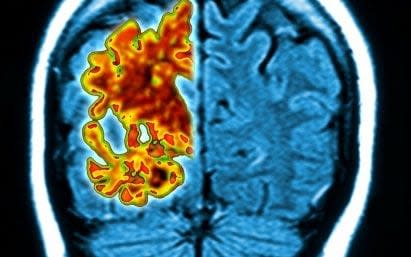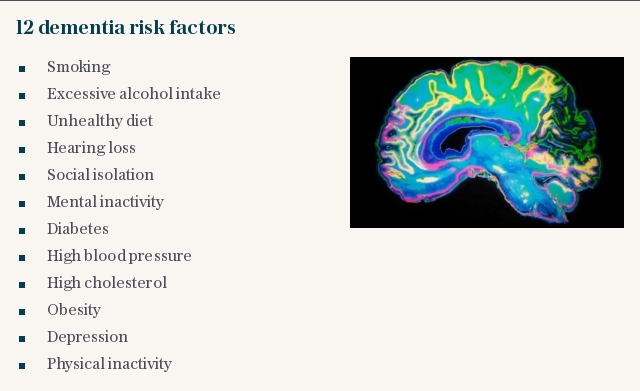Memory loss and mental decline in old age largely decided by age of eight, study shows

Memory loss and mental decline in old age is largely decided by the age of eight, a new study has shown.
Scientists at University College London (UCL) tested the memory and thinking skills of Britons in their late 60s and 70s and compared the results to similar cognitive tests that they took as schoolchildren in 1954.
They found that someone whose cognitive performance was in the top 25 percent as a child, was likely to remain in the top 25 percent at age 70.
Spending longer in education also seemed to be protective, with participants who completed a college degree scoring around 16 percent higher than participants who left school before the age of 16. There was a strong link between those who performed well aged eight, and those who went on to further education.
And having a professional rather than manual job were also related to a slight improvement in thinking and memory performance in older people. Those who had worked in professional jobs tended to recall an average of 12 details from a short story, compared to 11 details for those who had worked in manual jobs.
“Finding these predictors is important because if we can understand what influences an individual’s cognitive performance in later life, we can determine which aspects might be modifiable by education or lifestyle changes like exercise, diet or sleep, which may in turn slow the development of cognitive decline,” said study author Dr Jonathan Schott, of UCL.
“We found that childhood cognitive skills, education and socioeconomic status all independently influence cognitive performance at age 70.”

The study involved 502 people all born during the same week in 1946 in Great Britain who took cognitive tests when they were eight years old.
Between the ages of 69 and 71, participants took thinking and memory tests again. One test, similar to a test they completed as children, involved looking at various arrangements of geometric shapes and identifying the missing piece from five options.
Other tests evaluated skills like memory, attention, orientation and language.
Participants also underwent positron emission tomography (PET) scans to see if they had amyloid-beta plaques in the brain which are associated with Alzheimer’s disease. Researchers found that participants with amyloid-beta plaques had lower scores on cognitive testing, scoring eight per cent lower on average in the missing pieces test.
However the presence of plaques was not associated with childhood cognitive skills, education or socioeconomic status.
The findings suggest that early years of development may be crucial for mental health in later life and questions the theory that cognitive decline could be delayed through lifestyle choices in later adulthood.

Some scientists have suggested that keeping the brain active in middle age - such as by completing crosswords - can help build up cognitive reserve and stave off dementia. But others now think the effect is caused by reverse-causality, with people who enjoy crosswords already having greater cognitive skills.
Dr Carol Routledge, Director of Research at Alzheimer’s Research UK, said: “It is difficult to measure the extent to which individual lifestyle factors contribute to our overall dementia risk, but participants in the study offers a unique opportunity to find out more.
“This study sheds more light on the complex relationship between memory and thinking skills in early life and our cognitive ability as we get older.
“One explanation for this relationship is cognitive reserve, the idea that the memory and thinking skills we acquire during our lives can make us more resilient to the symptoms of dementia in older age, but more research is needed to better understand this link.”
The research was published in the journal Neurology.

 Yahoo News
Yahoo News 
